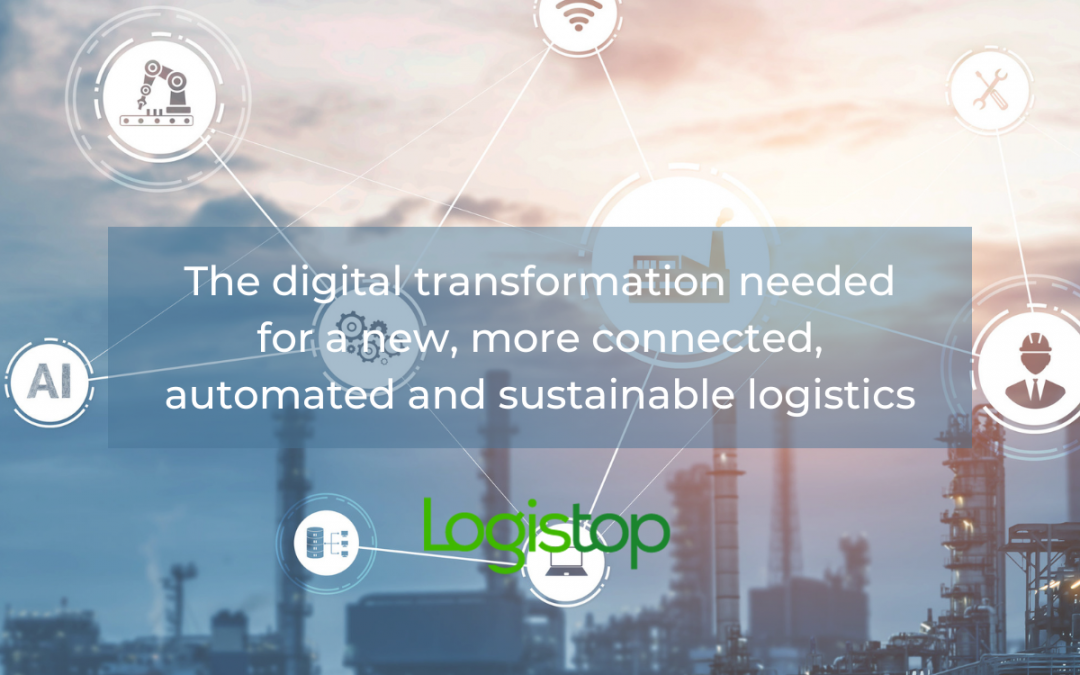- The lack of standards and the complex traceability of shipments are two of the challenges to be solved by blockchain technology.
- Collaboration and data sharing, a solution for more sustainable logistics.
- Trends in logistics require a change in manual processing.
In the Logistop Webinar “The digital transformation necessary for a new, more connected, automated and sustainable logistics”, we have presented and analysed, on the one hand, from a digital point of view, how collaboration and information sharing between companies are a key element through technologies such as blockchain or the use of collaborative data spaces; and, on the other hand, from a physical point of view, how intelligent handling and classification helps to manage high volumes of packages efficiently.
To analyse these issues we had the participation of Antonio Pinedo Hoyvik, CEO, SIGNEBLOCK, Juan Vicente Sanchís Nadal, CEO, Vector Conveyors S.L., and Pablo Escribano, Technical Lead, CAPILLAR IT, as well as the introduction of Tomás de la Vega, Managing Director, Logistop, and the moderation of David Ciprés, Head of Data Analytics, Digital Twin, IoT and Blockchain applied to industrial and logistics processes, ITAINNOVA.

Connected logistics and data exploitation with blockchain
Antonio Pinedo analysed and explained how blockchain technology and the exploitation of data can lead to more connected and secure logistics, making it possible to guarantee that all the information that is trafficked is secure and traceable. All this, taking into account the existing reluctance on the part of companies to share their information. In this sense, Pinedo highlighted how blockchain technology makes it possible to record, on the one hand, private data (which allows processes to obtain certification) and, on the other hand, public data (which obtains validation from other actors in the ecosystem).
The basis for the success of this data exchange through electronic applications is possible, as Pinedo pointed out, thanks to the homogenisation of structures for identical data, but using different computer languages. To this end, the implementation of the EDI system allows the improvement of productivity, both internally and externally; the reduction of operational costs; the proven reduction of administrative and management errors, as well as a decrease in the time invested in the data entry process.
“The lack of standards and the lack of interoperability between the management systems of the different actors involved in the supply chain makes the traceability of shipments very complex and increases incident rates, especially in open networks”
Antonio Pinedo Hoyvik, CEO, SIGNEBLOCK
Intelligent solution to optimise manual sorting operations
Juan Vicente Sanchís highlighted the importance of observing the trends that are occurring in logistics and, as a result of which, they have identified the need for manual processing to be faster, more flexible and more economical. Among the market needs identified, Sanchís refers to the following: automation of repetitive and simple tasks; adapting to new demands in the manual processing of goods; optimising the use of resources and PPH; reducing the complexity of the sorting process; better distribution of personnel; easy and intuitive to handle; and rapid implementation with a quick return on investment.
As a result of this observation they have developed Flow Projector, which facilitates the manual processing of goods and makes manual processing meet the previously identified characteristics (speed, flexibility and cost-effectiveness). This solution also improves ergonomics and complements the existing operating environment.
“Las tendencias en logística hacen necesario un cambio en el procesamiento manual, requiriendo que este sea más rápido, flexible y económico”
Juan Vicente Sanchís Nadal, CEO, Vector Conveyors S.L.
Sustainable logistics through data spaces with FIWARE and i4Trust
Faced with the current need to carry out decarbonisation processes in logistics, Pablo Escribano highlights two possible interconnected solutions: changing the type of vehicle used for transport and rethinking logistics through collaboration. Changing vehicles entails a reorganisation that entails investments to adapt operations or collaboration agreements with other companies. However, collaboration is complex and currently does not take place, mainly due to the exchange of data, as this sharing can lead to problems for companies, such as loss of customers.
In this context, as Escribano pointed out, the European Union is promoting the digital single market for decentralised exchange of digital data and services allowing everyone to own their data, with i4Trust as the first prototype of this. It is within the framework of i4Trust that CAPILLAR IT is also launching its prototype simulation service to analyse the new collaborative logistics in a technological environment where data belongs to everyone.
“One of the possible solutions for the decarbonisation of logistics is to rethink it through collaboration. However, collaboration is complex and currently does not happen, mainly due to data sharing, as such sharing can pose problems for companies”
Pablo Escribano, Technical Lead, CAPILLAR IT
To conclude, David Ciprés wanted to emphasise the idea that technology plays a key role in the sharing of data and information, but it is also necessary that, in parallel, a legislative transformation takes place to promote this collaborative use and that the barriers currently encountered by companies and suppliers disappear.
About Logistop
Logistop is the benchmark workspace for collective innovation through the realisation of projects hand in hand with our members. Transforming the entire supply chain into a more efficient and sustainable one. All this with the aim of articulating and carrying out innovation projects among the members, without excluding the possibility of collaborating with or receiving support from certain organisations outside Logistop.

